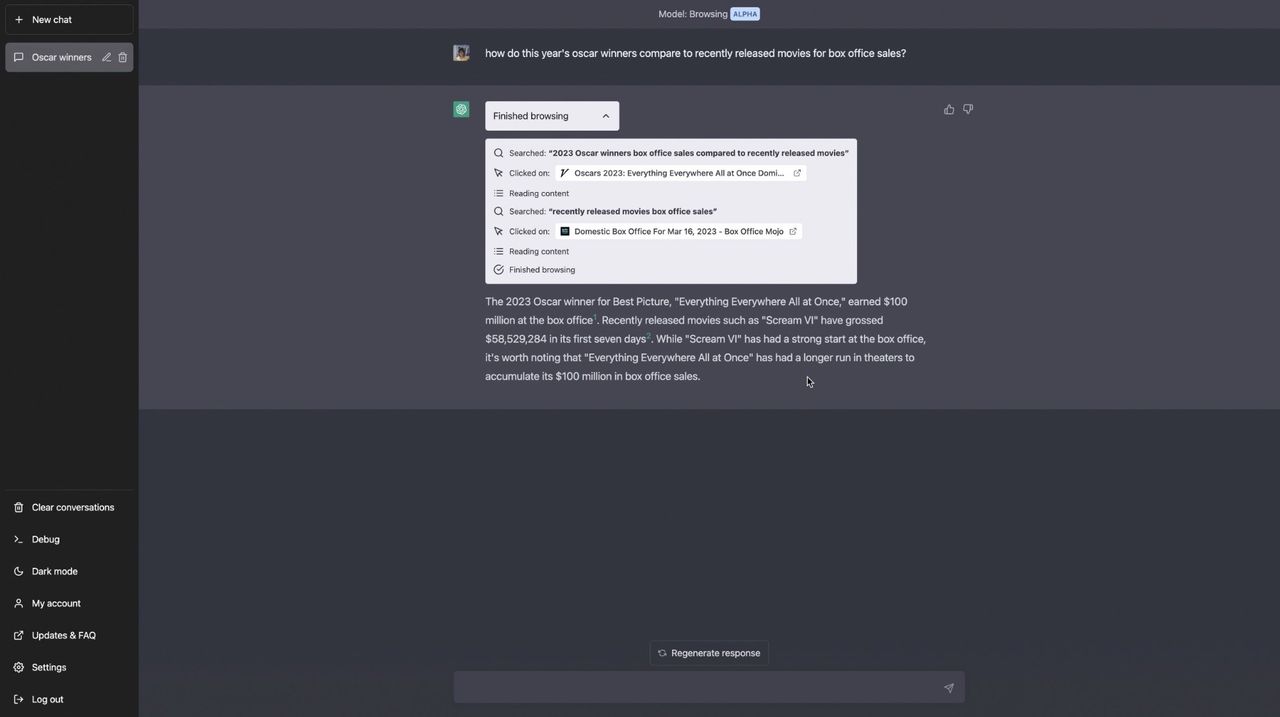OpenAI is adding support for plug-ins to ChatGPT, which will allow the chatbot to access more functionality and even live data from the web for the first time. So far, ChatGPT has only been able to retrieve information from its training data, which only goes up to 2021. OpenAI says that plug-ins not only allow GPT to surf the web but also interact with specific services, which could potentially make the bot an interface for all kinds of services and websites.
An example shown by OpenAI is how someone can use ChatGPT to find a recipe and then order the necessary ingredients from Instacart. ChatGPT automatically loads the ingredient list into the shopping service and redirects the user to the website to complete the order. If one then wonders how many calories are in the dish, it uses Wolfram for that, and if one changes their mind and says they want to eat at a restaurant instead, OpenTable finds a place that has the dish.
Companies that OpenAI collaborates with in the beginning include Expedia, FiscalNote, Instacart, KAYAK, Klarna, Milo, OpenTable, Shopify, Slack, Speak, Wolfram, and Zapier. Klarna provides a price comparison service.
OpenAI also has two plug-ins of its own: a code interpreter and a “web browser.” The code interpreter allows you to draw graphs, interpret data, and run scripts in a sandbox. For example, you can upload a CSV and tell ChatGPT to do things with it.
The web browser is perhaps the biggest addition because ChatGPT only knew things up to 2021. Now, if it doesn’t know anything in its regular data, it rolls out onto the internet and tries to find it there. An example is if you ask who won the Oscar for Best Picture, asking for 2020, it knows it itself, but asking for this year, it surfs for the information.
OpenAI is now beginning to roll out plug-ins to a small group of users.

